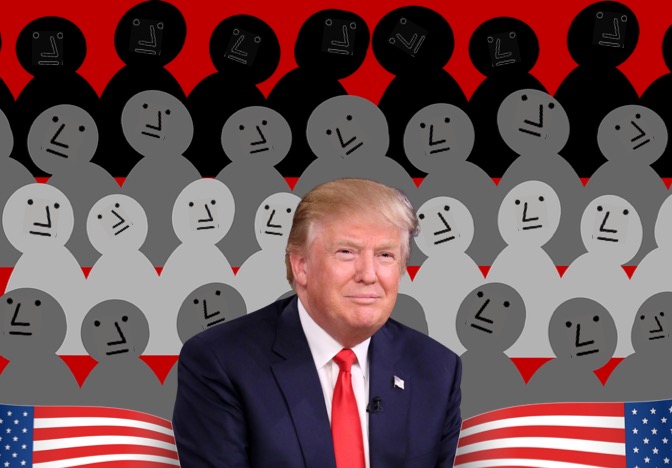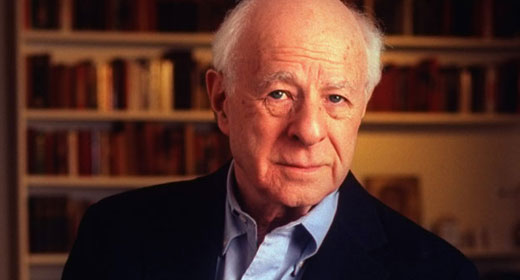To save the Republic, the Right must reorient itself to fight multiculturalism.
Mass Culture: Multiculturalism vs. Education

Despite its theoretical pretensions, multiculturalism has come to be revealed as a phenomenon of mass technological and consumer society.
.
“If a nation expects to be ignorant and free, in a state of civilization, it expects what never was and never will be”
Thomas Jefferson
.
Tom Klingenstein has suggested that the crisis of American politics is most profoundly revealed by the manner in which multiculturalism has succeeded in bringing about the closing of the American mind. His critique of multiculturalism reveals the importance of liberal education—the necessity of philosophic or trans-historical knowledge—as essential to the perpetuation of liberal democracy understood as a regime of civil and religious liberty.
Within democratic society, the political defense of philosophy and religion makes it possible and necessary to create and nurture a natural aristocracy: a governing elite capable of understanding its own interests, as well as the good of the whole. This sort of elite education allows a mass civil society to cultivate civic virtues capable of reconciling power and knowledge in a manner compatible with freedom, human excellence, and the common good.
To defend democracy, popular sovereignty, and limited government in a manner consistent with good government and human happiness, liberal education is a crucial necessity. It requires not only the freedom of inquiry, but the cultivation of the mind and its ongoing development and preservation through liberal education. As Harry Jaffa has noted:
“The American Founding limited the ends of government. It did not limit the ends of man. The ends of the regime, considered as ends of government, were lowered. But the ends both of reason and revelation served by the regime, in and through the limitations on government, were understood to enhance, not to diminish, the intrinsic possibility of human excellence. As long as the idea of human excellence itself survived, as understood by the great tradition of Western civilization—the civilization of the Bible and of classical philosophy—the dignity of the American Founding remained that of man’s highest ends. It is the outright denial—within the very citadels of learning, the universities—of the dignity of reason and of revelation that threatens the eclipse of the American Founding, and therewith of Western civilization itself.”
Klingenstein is well aware that multiculturalism, and its corollary, diversity, has established itself as an unassailable foundation of morality and “political correctness.” The ground upon which multiculturalism establishes morality is the recognition of a ‘historic sense’ derived from the consciousness of freedom, or will, of contemporary intellectuals. It is a triumph of will over reason—of passion, and emotion. It is a dogmatic morality that defines and imposes what passes for good and evil, virtue and vice, without the necessity of any theoretical foundation, argumentation, or demonstration.
Since multiculturalism has no discernible rational limits in terms of determining what can or will become a virtue or a vice, it is established without debate. In the public world, it has created an enforcement arm that succeeds without the use of physical force. Language itself becomes a weapon on behalf of its relativism and nihilism. Political correctness has cowed the whole class of prominent public and private elites, in government and civil society, who “lost their civic courage,” in the words of Aleksandr Solzhenitsyn.
Although multiculturalism, or contemporary postmodernism, understands itself in terms of culture, no genuine or enduring culture of the past could or would have understood itself in terms of multiculturalism. Every great culture established the meaning and the defense of its own good. The whole was intelligible only with reference to itself. It was ultimately an absolute singular, incapable of becoming a plural of any kind. Nor could any enduring culture understand itself in relative terms, as equal to any or all other cultures.
Multiculturalism has attempted to relativize and universalize politics and morality on behalf of mass culture, which is itself an adaptation of mass society. Despite its theoretical pretensions, multiculturalism has come to be revealed as a phenomenon of mass technological and consumer society. Hannah Arendt noted long ago that “mass society is essentially a consumers’ society where leisure time is used no longer for self-perfection or acquisition of more social status, but for more and more consumption and more and more entertainment. And since there are not enough consumer goods around to satisfy the growing appetites of a life process whose vital energy, no longer spent in the toil and trouble of a laboring body, must be used up by consumption… The result is, of course, not mass culture which, strictly speaking, does not exist, but mass entertainment, feeding on the cultural objects of the world [emphasis added].” Mass entertainment, in turn, is necessarily dependent upon mass communication, or technology.
As Arendt noted, “a consumers’ society cannot possibly know how to take care of a world and the things which belong exclusively to the space of worldly appearances, because its central attitude toward all objects, the attitude of consumption, spells ruin to everything it touches.” Modern society appears to be tied together by mass production, mass consumption, mass communication, mass markets, mass entertainment, and mass culture, all of which are made possible by modern technology. As a result, American society today is more akin to a technological phenomenon than any prior political attempt to establish unity with reference to culture or regime.
Multiculturalism, like technology, is not something willed, chosen, controlled, or even understood by the various knowledge elites. It is an adaption to a mass phenomenon that has become intellectually unintelligible with reference to any unifying whole. It appears only after the end of genuine politics and culture, when both are no longer meaningful in their original sense. That is because, as opposed to ideas or political forms, technology enframes modern man, establishing the unity that creates the conditions (of communication, production, entertainment, etc.) that impose order on the whole. Consequently, it is possible only to adapt to the technology that resists human control—the technology or tools that form us. Nonetheless, the illusion persists that man controls technology, whereas the reality may be that he is much more likely to be enchained by technology and mass culture.
In his attempt to confront the problem of technology, Martin Heidegger insisted that “the essence of technology is by no means anything technological. Thus we shall never experience our relationship to the essence of technology as long as we merely conceive and push forward the technological…. We remain unfree and chained to technology…. But we are delivered over to it in the worst possible way when we regard it as something neutral; for this conception of it…makes us utterly blind to the essence of technology.” Modern science had so completely transformed the understanding of the natural world, and technology had re-presented, or remade, the natural world in an applied theoretical way, that science and technology are not distinguishable. In looking at science and technology as the same phenomenon, Heidegger posed the problem. “What modern science is: technology, What technology is—completion of metaphysics”. What establishes the ground of thinking in such circumstances?
The specialized knowledge elites will never understand the moral ground of mass culture or mass technology. Multiculturalism appears to be the mass intellectual response to the loss of genuine culture and meaningful politics. Unlike the scientific knowledge elites, the humanist intellectual elites have responded with contempt toward culture itself and “the attitude of consumption [that] spells ruin to everything it touches.” Consequently, as Alain Finkielkraut noted, “When hatred of culture becomes itself a part of culture, the life of the mind loses all meaning.”
In a mass consumer society, bound together by technology, democracy cannot be understood in terms of self-government or political rule. Such a society becomes a mass technological order that seeks to universalize, or rationalize, all political, social, economic, cultural, and religious phenomena, under the banner of multiculturalism. In reality, multiculturalism can only be at home in the universal and homogenous state. Moreover, it is anti-intellectual insofar as it has no need to understand any actual political or cultural phenomenon. Not only does it deny the necessity of an open mind, it demands its closing. Consequently, it regards liberal education as its greatest enemy.
In the absence of regime, or a true culture, as the ground of politics, “democracy is then not indeed mass rule, but mass culture,” as Leo Strauss reminded us. Strauss insisted that “A mass culture is a culture which can be appropriated by the meanest capacities without any intellectual and moral effort whatsoever and at a very low monetary price. But even a mass culture and precisely a mass culture requires a constant supply of what are called new ideas, which are the products of what are called creative minds…” When culture is viewed as a commodity, the intellectuals become the elites that establish the content and meaning of mass entertainment.
Strauss insisted that “liberal education is the counterpoison to mass culture, to the corroding effects of mass culture, to its inherent tendency to produce nothing but ‘specialists without spirit or vision and voluptuaries without heart.’” The political defense of freedom and the mind rests upon the adequacy and effectiveness of liberal education. As Strauss noted, “liberal education is the ladder by which we try to ascend from mass democracy to democracy as originally meant. Liberal education is the necessary endeavor to found an aristocracy within democratic mass society. Liberal education reminds those members of a mass democracy who have ears to hear, of human greatness.”
Liberal education, Strauss went on, “is concerned with the souls of men and therefore has little or no use for machines. If it becomes a machine or an industry, it becomes undistinguishable from the entertainment industry unless in respect to income and publicity, to tinsel and glamour.” In our time, when mass culture (multiculturalism) orders society, politics and culture have become a machine and an industry. Moreover, it has become increasingly difficult to distinguish them from the entertainment industry even in respect to income and glamour.
Tom Klingenstein is right to suggest that multiculturalism and political correctness now pose perhaps the most serious threat to the preservation of a regime of civil and religious liberty. Western culture, properly understood, is compatible with freedom, individual human excellence, and an understanding of the necessity of a common good. A genuine liberal, or liberating, education requires the re-opening of the mind. It is, Strauss insisted, “education in culture or toward culture. The finished product of a liberal education is a cultured human being.” Consequently, it is incompatible with mass culture or mass technological society. Liberal education rewards those who cultivate the “native faculties of the mind in accordance with the nature of the mind,” Strauss suggests, in the same way as the cultivation of the soil (agriculture) “improves the soil in accordance with its nature.”
But it is unlike a meritocracy, as Michael Young (The Rise of Meritocracy) pointed out long ago, which “bases rewards on productivity and merit” through “a system that is unusually capable of generating wealth.” Although a meritocracy has become part of the mass culture required and imposed by a technological order, it is not the same as the natural aristocracy that is compatible with liberal democracy and liberal education as originally understood. That is because, as Strauss suggested, “liberal education is concerned with the souls of men.” As a result, it recognizes that the cultivation of the human mind cannot be indifferent to the aspiration for human excellence and human greatness. The freedom of the mind (civil liberty) was so important to Thomas Jefferson that he thought it necessary to defend it with religious zeal. He said, “I have sworn upon the altar of God eternal hostility against every form of tyranny over the mind of man.”
The American Mind presents a range of perspectives. Views are writers’ own and do not necessarily represent those of The Claremont Institute.
The American Mind is a publication of the Claremont Institute, a non-profit 501(c)(3) organization, dedicated to restoring the principles of the American Founding to their rightful, preeminent authority in our national life. Interested in supporting our work? Gifts to the Claremont Institute are tax-deductible.
Through dignity and subsidiarity, America can prevail with more than rough justice.
Behind the culture talk is a singleminded scheme to divide and conquer America.
From openness to emptiness: Our bipartisan elite wants to replace America with a vapid utopia where anything goes.
President Trump is the leader of conservative America—and the only alternative to the disintegration of the United States as a great power.
The neoconservative founder talks Trump—and finds him on the right side of the patriotism vs. multiculturalism divide.






